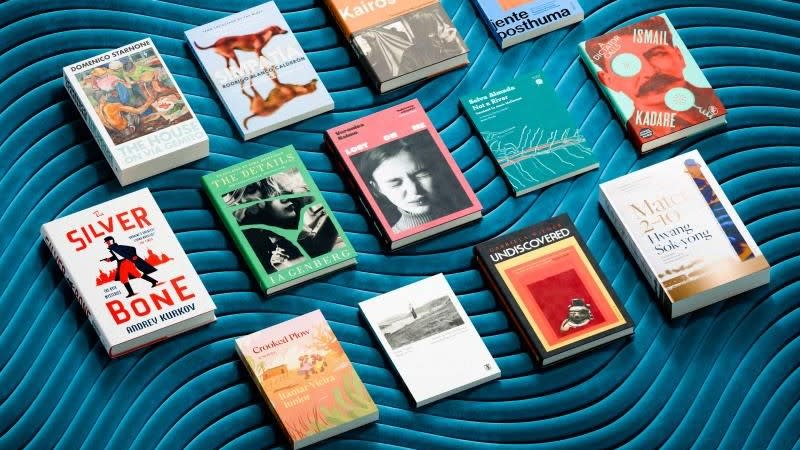The new 'boom' in Latin American fiction

- Oops!Something went wrong.Please try again later.
- Oops!Something went wrong.Please try again later.
- Oops!Something went wrong.Please try again later.
In the 1960s, a revolutionary literary movement burst on to the global publishing scene in what would become known as the Latin American boom.
The international success of authors like Colombia's Gabriel García Márquez, Argentina's Julio Cortázar and Peru's Mario Vargas Llosa brought Latin American fiction to the literary forefront in the 20th century. Now, we are witnessing a second boom, according to judges of the International Booker Prize. South American authors account for "almost a quarter" of the longlist for this year's prize, said The Bookseller.
Argentinian poet and novelist Selva Almada, Venezuelan writer Rodrigo Blanco Calderón, Brazilian short story writer Itamar Vieira Junior and Peruvian "chronicler" Gabriela Wiener have all been longlisted for the prize, which recognises the best novels and short stories with translations published in the UK or Ireland last year. The list "highlights the growing pool of talented South American writers, signaling a second 'boom' in Latin American fiction", said prize administrator Fiammetta Rocco.
What was behind 'el boom'?
Last year, when four Irish authors appeared on the Booker Prize longlist, the eventual winner Paul Lynch was asked why Ireland produced such talented writers. The author of "Prophet Song" replied: "Can I let you into a secret? I think South America has the best writers."
The original "el boom" was born out of the political turmoil that overtook Latin America during the 1960s and 1970s. Long and bloody wars, military coups, repressive dictatorships, revolutions and the threat of nuclear war apparent in the Cuban Missile Crisis all stirred authors to depict their own nations.
But the boom was amplified by the economic development of Latin America, mass media and the growing attention on the region, according to Randolph D. Pope, author of "The Spanish American novel from 1950 to 1975", published in 1996. European publishing houses such as Barcelona's Seix Barral and the work of translators brought Latin American boom novels to international renown.
What might be driving a second boom?
Over the past few years, a similar wave of political upheaval and violence has swept the region, amid economic instability, poverty and the failure of the war on drugs.
Argentina has experienced record inflation, political turmoil and the election of the anarcho-capitalist Javier Milei as president.
Wiener's native Peru suffered a series of corruption scandals ending in a presidential impeachment and three presidents in a week, not to mention one of the world's worst Covid-19 death tolls. Her novel "Undiscovered" grapples with the search for post-colonial Peruvian identity.
In Brazil, the dramatic presidency of far-right Jair Bolsonaro was marked by rising crime, social division and the devastation of the Amazon rainforest. Last year, Bolsonaro's supporters stormed the seat of government after his successor's inauguration, echoing the Trump-supporting Capitol riots in the US. Vieira Junior's "Crooked Plow" tells the story of two sisters haunted by a history of violence.
Venezuela has suffered a mass exodus of citizens fleeing the corruption and desperate poverty of Nicolás Maduro's authoritarian regime. The longlisted "Simpatía" by Blanco Calderón offers an allegory set in Caracas during the dictatorship.
Elsewhere in the region, poverty and drug-related gang violence have engulfed Ecuador, Haiti, Honduras, Colombia, Mexico and many other areas. El Salvador now boasts one of the most repressive dictatorships in the world.
This year's longlist, chosen from 149 books published between May 2023 and April 2024, comprises works that "speak of courage and kindness, of the vital importance of community, and of the effects of standing up to tyranny", said Rocco.
A number of the books "highlight the struggles of individuals and minorities in the face of oppression", said the prize website. "History, both personal and national, weighs heavily on characters", including "the legacy of slavery and land theft in Brazil".
What next?
The judging panel – this year chaired by broadcaster and journalist Eleanor Wachtel – will reveal a shortlist of six on 9 April, while the winner will be announced in London on 21 May.
Both the author and translator of the winning novel each receive £25,000, while shortlisted authors and translators receive £2,500.

